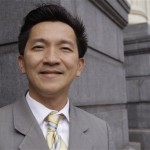GOP Losing Vietnamese American Voters
 Vietnamese Americans have historically backed GOP candidates and self-identified as Republicans more than other Asian American groups. But this support may not last.
Vietnamese Americans have historically backed GOP candidates and self-identified as Republicans more than other Asian American groups. But this support may not last.
Vietnamese Americans have as a group historically voted in favor of Republican candidates and have self-identified as Republicans at a greater rate than other Asian American communities. This is for a number of reasons, including because Vietnamese Americans perceived the GOP as being the more aggressively anti-communist of the two major American political parties, particularly during the Reagan era. Given the historical circumstances which led to emigration by Vietnamese people to the United States, in many ways one can consider the Vietnamese American experience to be similar to that of another post-World War II immigrant population - the Cuban American community, and the voting tendencies between both groups are quite similar.
This voting tendency has not disappeared. According to the National Asian American Survey (NAAS) entitled "Asian Americans and the 2008 Election" (which was conducted prior to the 2008 Presidential election), Vietnamese Americans were the only Asian American group that leaned more Republican than Democrat, and the polling in that survey showed strong support for John McCain over Barack Obama at a ratio of two to one. The exit polling conducted during that election seems to support the pre-election polling cited above. According to a report from the Asian American Legal Defense and Education Fund (AALDEF) entitled "The Asian American Vote in the 2008 Presidential Election", Vietnamese Americans had the highest percentage of identification with the Republican Party among Asian American groups at 44%, with that number going over 50% in the states of Texas, Louisiana and Maryland. This exit poll report also stated that Vietnamese Americans voted in favor of John McCain over Barack Obama at a rate of 67% to 30%, a ratio which tracked the polling among decided voters in the pre-election report from the NAAS. Vietnamese Americans were the only Asian American group to vote in favor of John McCain over Barack Obama in 2008.
It is therefore not surprising that the first Vietnamese American U.S. Congressman would be a Republican, Joseph Cao (R-Louisiana), or that other prominent Vietnamese American political and public policy figures, such as former Assistant Attorney General Viet Dinh or California State Assemblyman Van Tran would come primarily from the GOP. All this having been said, it would be a mistake for Republicans to assume that Vietnamese Americans will remain overwhelmingly supportive of the GOP in the future. This is because younger Vietnamese American voters and native-born Vietnamese American voters are trending towards the Democratic Party.
The AALDEF report mentioned above found that among Vietnamese Americans born in the United States, Barack Obama won 69% of the vote and Barack Obama won 60% of the vote of Vietnamese Americans between the ages of 18 and 29. While these two cohorts are minorities within the broader Vietnamese American community (15% and 25%, respectively), obviously these groups are the demographic future of the Vietnamese American community, unless there is another wave of large-scale immigration from Vietnam. This trend has been noted in Vietnamese American strongholds like Orange County, California and Houston, Texas. In the latter case, a Vietnamese American Democratic businessman named Hubert Vo defeated a longtime incumbent Republican state representative in 2004 to become the first Vietnamese American in the Texas State Legislature.
There are many reasons for this shift away from the Republican Party among Vietnamese Americans. In some ways, one can argue that this is a simple example of assimilation among younger Vietnamese Americans, in that their voting patterns are coming more into line with their same-age counterparts in other ethnic groups and with other Asian Americans. Also, this may just be a classic example of native-born voters drifting away from the home-country orientation of their immigrant parents, particularly given that it has now been 35 years since the end of the Vietnam War and the possibility that the communist government in Vietnam will be overthrown has largely faded, thus diminishing the salience of that issue as a voting issue. However, there is evidence (as discussed in the articles cited herein) that this shift is also because of perceptions among Vietnamese Americans that the Republican Party is becoming less welcoming of immigrant populations, and Vietnamese Americans have shown some support for liberal domestic policy initiatives, such as healthcare reform.
One shouldn't overstate the case. Republicans can still look to the Vietnamese American community as being a uniquely pro-GOP group among Asian Americans. This isn't something that Republicans can assume will be the case for the future, however. Indeed, one may argue that the most prominent Vietnamese American national politician, Representative Joseph Cao, may himself be positioning himself in a politically centrist manner that acknowledges both the generally Democratic nature of his district and changes in the Vietnamese American electorate. The Vietnamese American vote, while not a gigantic one in the United States, is congregated in key urban centers in which they can act as an important swing vote. A Houston Press article published in 2004 discusses the Hubert Vo campaign described above as an example of the political implications of such demographic transformation in Houston. Therefore, a move towards the Democratic Party by Vietnamese Americans is not a trivial issue, and current trends may bring more joy to Democrats than to Republicans in coming years.